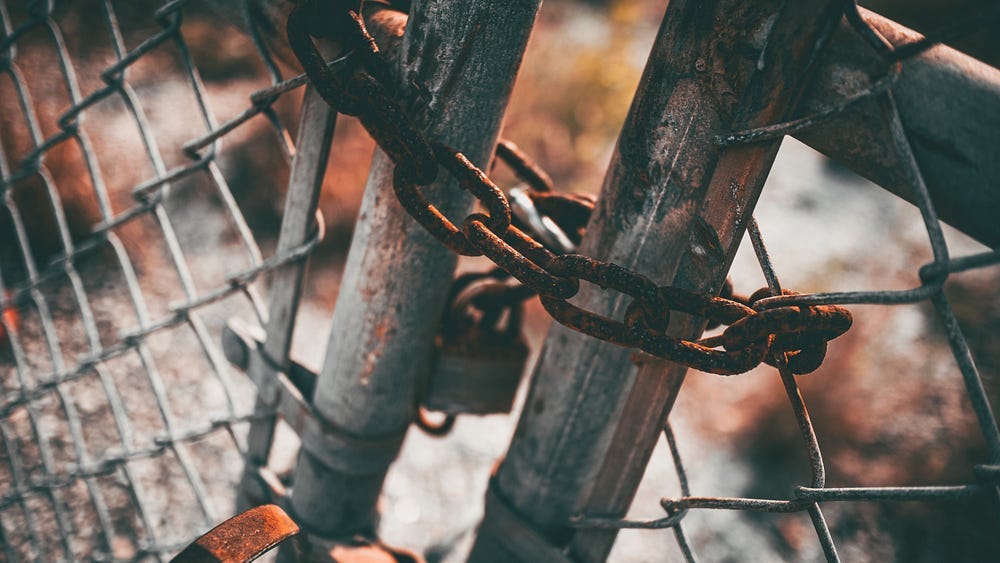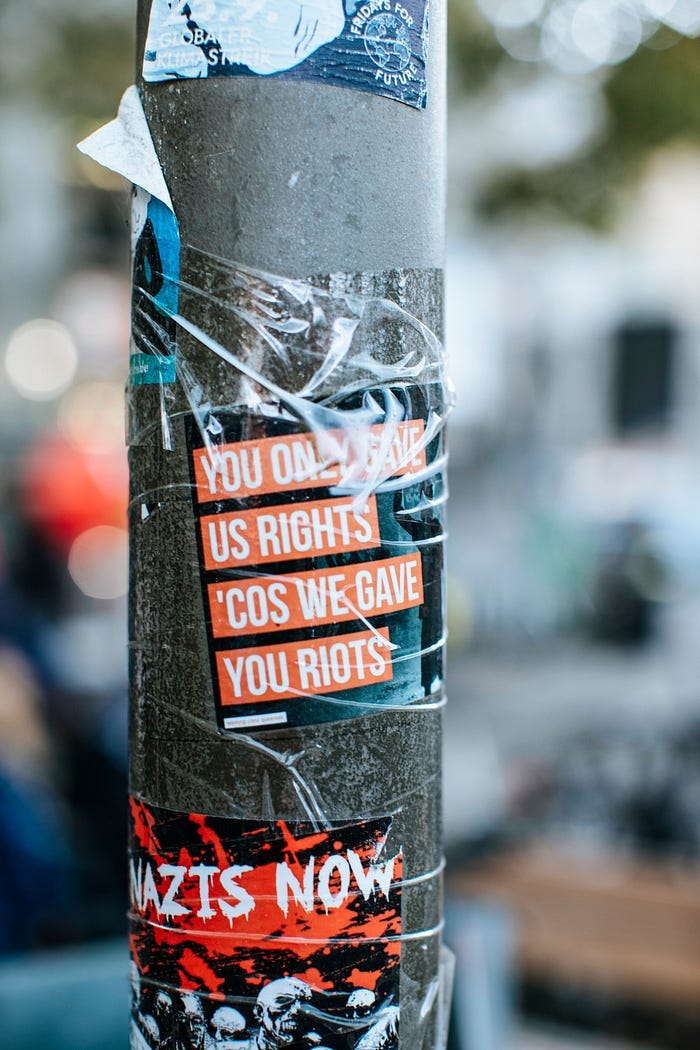The Right to Life Must Include the Right to Eat
If our basic needs are not met, do we really have the right to live?

When writing about human rights, I often find myself frustrated by a simple and infuriating concept. There is a difference between having a right on paper and having a right in practice.
Take for example the Universal Declaration of Human Rights as put forth by the United Nations.
This is a landmark document, cited in treaties around the globe and often viewed as a benchmark for what human beings ought to be entitled to under the law of their nations. It’s the foundational declaration at the heart of international Human Rights Law.
It’s a pretty solid document. But even the member states that agree to it — that cite it, even — don’t follow its example.
For instance, Article 2 states:
Everyone is entitled to all the rights and freedoms set forth in this Declaration, without distinction of any kind, such as race, colour, sex, language, religion, political or other opinion, national or social origin, property, birth or other status. Furthermore, no distinction shall be made on the basis of the political, jurisdictional or international status of the country or territory to which a person belongs, whether it be independent, trust, non-self-governing or under any other limitation of sovereignty.
And then Article 3 says:
Everyone has the right to life, liberty and security of person.
Article 25 even says:
Everyone has the right to a standard of living adequate for the health and well-being of himself and of his family, including food, clothing, housing and medical care and necessary social services, and the right to security in the event of unemployment, sickness, disability, widowhood, old age or other lack of livelihood in circumstances beyond his control.
On paper, this is pretty cut and dry. All human beings have the basic right to live, regardless of their essential characteristics, place of birth, religious beliefs, or language. Wealth and social status don’t matter, skin color doesn’t matter, sex doesn’t matter.
All human beings have the equal right to live without oppression. We have the right to a decent standard of living and to our needs being met.
On paper, we all have those rights. These countries have agreed to it, it has been stamped and signed and hands have been shaken. We all seem to be on the same page.
I don’t think I need to point out how these rights are being denied in practice.

In 2005, the former CEO of Nestlé appeared in a documentary called ‘We Feed The World’. Peter Brabeck, who held his position in the company from 1997 to 2008, was discussing the question of whether access to clean water should be privatized:
“The one opinion, which I think is extreme, is represented by the NGOs, who bang on about declaring water a public right. That means that as a human being you should have a right to water. That’s an extreme solution. The other view says that water is a foodstuff like any other, and like any other foodstuff it should have a market value.” — Peter Brabeck-Letmathe
To me, this is an incredibly important interview. It showcases the mindset of the people in charge of making these decisions on the corporate level. He even stated that he considered the most important responsibility of his job to be ensuring the company remains profitable.
Isn’t that telling?
Clean drinking water, one of the most basic necessities of life, is a commodity to him. For that matter, so is food! Two of the five things that we cannot survive without, on the most fundamental level.
If you do not have water, and you do not have food, you will die.
We cannot survive without them, and therefore depriving us of them places us in a state of desperation. People don’t want to die. We will do what we must in order to live, and that includes working ourselves to the bone and giving up what we earn.
We will provide labor to make our employers a profit, and then we will give up what we’ve received in order to survive another day.
We have a figurative gun to the back of our heads that keeps us motivated to do so.
But if our basic needs are behind a paywall… how can we say we have the right to live? It seems to me that what we have is the privilege to live, provided we have cash.
Rights are supposed to be something we’re all entitled to, no matter our wealth or social status. If we can’t fulfil our needs with an empty wallet, then a right is being denied.

Rights are one of those things that, once denied, are very hard to take back. When rights become privileges, by definition they can be stripped from you without a second thought.
That’s not to say that there shouldn’t be limits; if you deprive someone else of their right to live through murder, the justice system will deprive you of your freedom. Assuming of course that it finds you guilty.
We’ve talked about the State monopoly on violence before; click this link if you missed it!
But even then, you theoretically retain the right to a fair trial. They can’t take it from you arbitrarily, there is a process that must be followed — at least in democratic nations.
Looking at you, Stephen Miller. Looking at you, Donald fucking Trump.
There is a balance between protecting your freedom and protecting everyone else’s safety and well-being. That’s just how societal cooperation works, and there’s nothing wrong with that on its face — provided that it’s applied equally and fairly across the board.
When it’s no longer fair, people tend to step up to defend their rights. They protest, take a stand, and demand that their fundamental human rights be protected just the same as everyone else’s.
Sometimes these battles become violent — often, in fact. And when they do become violent, we tend to condemn the violence of protestors over the structural violence being perpetrated against them.
When abuse and oppression come down upon the population at the hands of the government, we don’t accept it — and we shouldn’t.
But when governments quietly allow injustice to go on, we treat it like a fact of life. When the ‘on paper’ right to life exists, but the paywall turns it into an ‘in practice privilege’, we let it go.
I think we should treat it like the crime that it is. I think we ought to demand justice. After all, as I said before, we have a word for violating someone’s right to live.

Murder is the intentional act of taking another human’s life away. There are different levels of murder, with different penalties and consequences. We generally agree that homicide is illegal and that perpetrators ought to face justice for the crime.
With that said, let’s consider one of the legally recognized forms of murder: Depraved-Heart Murder. A version of it crops up across different countries, often using different terminology but with similar qualifications.
We think of murder as the purposeful and intentional action of deliberate homicide.
Depraved-Heart Murder is defined a little differently.
Depraved-Heart is also known as Depraved-Indifference. It is the callous disregard for human life, resulting in death. Firing a loaded gun into a crowd of people without aiming it, driving your car into a group of protestors, things like that.
It’s different from manslaughter, which is typically brought when your behavior results in a death that was accidental or not planned. Texting while driving, or killing someone in a fight where your victim threw the first punch but you went further than self-defense allows.
Depraved-Heart is different. You may not have intended to end a specific person’s life, but your actions directly resulted in someone being killed. You have killed someone, through a deliberate action. It was not an accident, you were not provoked.
So, here’s my question.
If the necessities of life are being purposefully withheld from me, doesn’t that constitute a callous disregard for human life?
If, in the name of profit, a corporation removes water from a drought-stricken landscape and puts it into bottles, selling it for a price that the local people can’t afford… isn’t that callous disregard for human life?
Water is necessary to survive, after all. Actively taking away a source of drinking water can lead to death. Offering it back to them for more money than they have ensures the wealthier folks are fine, but the poor are bereft.
If they dump toxic effluent into the rivers that the locals drink from or spray toxic pesticides onto farmland and leave people sick, isn’t that callous disregard for human life? Poisoning can be lethal. At the very least it can cause grievous bodily harm.
That’s still negligent homicide if someone dies, at minimum.
If so… why don’t we hold them accountable for it?
Aren’t they violating our rights? Aren’t they violating the law? International Human Rights Law and domestic laws alike? We can sue them in civil court if we can afford to or if we get lucky. But shouldn’t they be held criminally liable?
Typically, criminal charges brought against a corporation will result in fines.
Is that enough of a punishment when human rights are being violated? Is it enough to ensure that they don’t repeat the behaviour?
If we have the right to life, if rights are to be equally extended to all human beings, they shouldn’t be able to hurt us without consequences. The justice system should step in, shouldn’t it? Regardless of how wealthy or poor we are?
Until it does, we don’t truly have rights. We have privileges. The privilege to eat, to drink clean water, to not be harmed. We have the privilege to be free, to have a roof over our heads, and the privilege to see justice done on our behalf.
If we have the money to make it happen, that is. And that’s the problem.
We will never truly have the right to life as long as it has a price tag attached.
Solidarity wins.


You're right. Basic things like water, food, clothing and shelter from the elements should be a right, not a privilege. Bit in this profit driven world, sadly, this is not a thing, unless you own the mineral rights to your property and have your own well. You will still have to figure out a way to pump it into your house but once you have it set up, it's yours.
I had a house in Caribou, Maine like that. My well, my well pump and related piping. I had to pay for the electricity and repairs, but it was all mine, until I learned that I had to share that water with my neighbors because my well pump pumped water from an underground aquifer, which they tapped into as well.
Or contaminated it with pesticides and horse manure or the runoff thereof that leeched down into the soil and into the aquifer. It was an expensive lesson at the time.
Now, most of us have to depend on local services contracted by a local authority for our clean potable water. We have to pay for the privilege of having this life saving water piped into our homes and businesses. Unless you want to go out in the backcountry and dig your own well or set up a filtration system capable of filtering lake or river water before pumping it into your backwoods house. I don't know which is cheaper in the long run or an annual basis.
We're stuck between a rock and a hard place when it comes to food, water and shelter. We're dependent on failing government systems to provide us with these basic life giving needs. As we can see around the world in a lot of western countries, these governments are failing their people when it comes to providing these things at a reasonable exchange. A lot of people in the developed countries are going to find out within the next couple of decades just what it feels like to not have access to the basics anymore. The American south west is starting to feel the pinch right now. It's only going to spread and get worse while Trump and Musk carry out their personal grievances with each other in all of the media feeds across the known world. This just goes to show how much the rich people care about such things. The people like them will be the last ones to feel the loss of clean water and food.